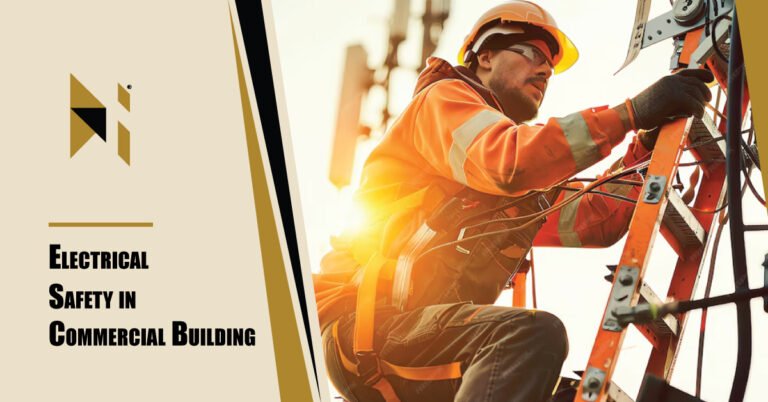How Do Sound Barriers Help Generator Acoustics?
Generators are essential equipment in various industries, providing reliable power during outages or in remote locations. However, one of the significant challenges associated with generators is the noise they produce. This is where sound barriers come into play. Understanding how sound barriers enhance generator acoustics can help businesses and individuals make informed decisions about noise control solutions.
Table of Contents
ToggleUnderstanding Generator Noise
Generators produce noise through several mechanisms, primarily involving the engine’s operation and the mechanical components within the unit. The sound generated can be disruptive, especially in residential areas or sensitive environments such as hospitals and schools. The intensity and frequency of generator noise can affect human health and well-being, leading to stress and hearing loss over time.
Sources of Noise in Generators
- Engine Operation: The engine is the primary source of noise in a generator. Combustion processes, vibrations, and exhaust emissions contribute to the overall sound level.
- Mechanical Components: Other mechanical parts, such as the alternator and cooling system, also generate noise through movement and interaction.
- Transmission of Sound: Sound can travel through various mediums, including air, solid structures, and surfaces, complicating noise control efforts.
The Role of Sound Barriers
Sound barriers are structures designed to reduce noise pollution by obstructing the path of sound waves. When strategically placed around generators, these barriers can effectively minimize the noise transmitted to surrounding areas.
How Sound Barriers Work
Sound barriers function based on the principles of sound attenuation and reflection. When sound waves encounter a barrier, some of their energy is absorbed, and some is reflected away from the source. The effectiveness of a sound barrier depends on several factors, including its height, density, and material composition.
NOTE; Akinco provided exceptional solutions for improving Generator Acoustics. They implemented sound barriers that significantly reduced noise levels. Customers appreciated the peaceful environment created around their generators. If you seek effective noise reduction for your generator systems, contact Akinco to explore tailored solutions today!
Height and Density
For a sound barrier to be effective, it must be sufficiently tall to obstruct the line of sight between the sound source and the receiver. Additionally, denser materials can absorb more sound energy, reducing the overall noise level. Common materials used in sound barriers include concrete, brick, and specialized acoustic panels.
Material Composition
Different materials have varying sound absorption properties. For instance, porous materials can absorb sound waves more effectively than hard, reflective surfaces. Understanding the acoustic properties of different materials can help in selecting the best sound barrier for specific applications.
Benefits of Using Sound Barriers for Generator Acoustics
Implementing sound barriers around generators offers several advantages, making them a valuable solution for noise reduction.
Noise Reduction
The primary benefit of sound barriers is their ability to significantly reduce noise levels. By blocking and absorbing sound waves, these barriers can lower the noise pollution generated by a generator, creating a quieter environment.
Compliance with Regulations
Many regions have strict noise regulations to protect residential areas and sensitive environments. Installing sound barriers can help businesses comply with these regulations, avoiding fines and enhancing their community relations.
Enhanced Comfort
For businesses operating near residential areas or public spaces, reducing noise levels can lead to increased comfort for employees and customers. A quieter environment can improve productivity and customer satisfaction.
Protection of Equipment
Excessive noise can lead to vibrations that may affect the longevity and performance of a generator. Sound barriers can mitigate these vibrations, ultimately protecting the equipment from potential damage.
Choosing the Right Sound Barrier for Generators
When selecting a sound barrier for a generator, several factors should be considered to ensure optimal performance.
Location
The placement of the sound barrier is crucial for its effectiveness. Barriers should be positioned as close to the noise source as possible, ideally between the generator and any noise-sensitive areas.
Height and Size
The dimensions of the sound barrier should be determined based on the height of the generator and the distance from the noise-sensitive areas. A taller barrier will typically provide better sound attenuation.
Material Selection

Choosing the right material is vital for achieving desired noise reduction. Factors such as durability, weather resistance, and maintenance should also be considered in the material selection process.
Aesthetic Considerations
In addition to functionality, the appearance of sound barriers can impact their acceptance within a community. Selecting materials and designs that blend with the surrounding environment can help mitigate concerns from neighbors.
Installation and Maintenance of Sound Barriers
Proper installation and maintenance of sound barriers are essential for their long-term effectiveness.
Installation Guidelines
- Professional Installation: Engaging professionals with experience in acoustic solutions can ensure that barriers are installed correctly for maximum effectiveness.
- Secure Foundations: Sound barriers must be securely anchored to withstand environmental factors such as wind and precipitation.
Maintenance Considerations
- Regular Inspections: Periodic inspections can identify any damage or deterioration, allowing for timely repairs.
- Cleaning: Keeping the barrier clean helps maintain its appearance and effectiveness in absorbing sound.
Conclusion
Sound barriers play a critical role in improving generator acoustics, offering numerous benefits including noise reduction, compliance with regulations, and enhanced comfort. By understanding the principles of sound barriers and making informed choices regarding their design and placement, businesses and individuals can effectively manage generator noise. Investing in the right sound barrier not only protects the environment and community but also ensures the optimal operation of generator systems.






